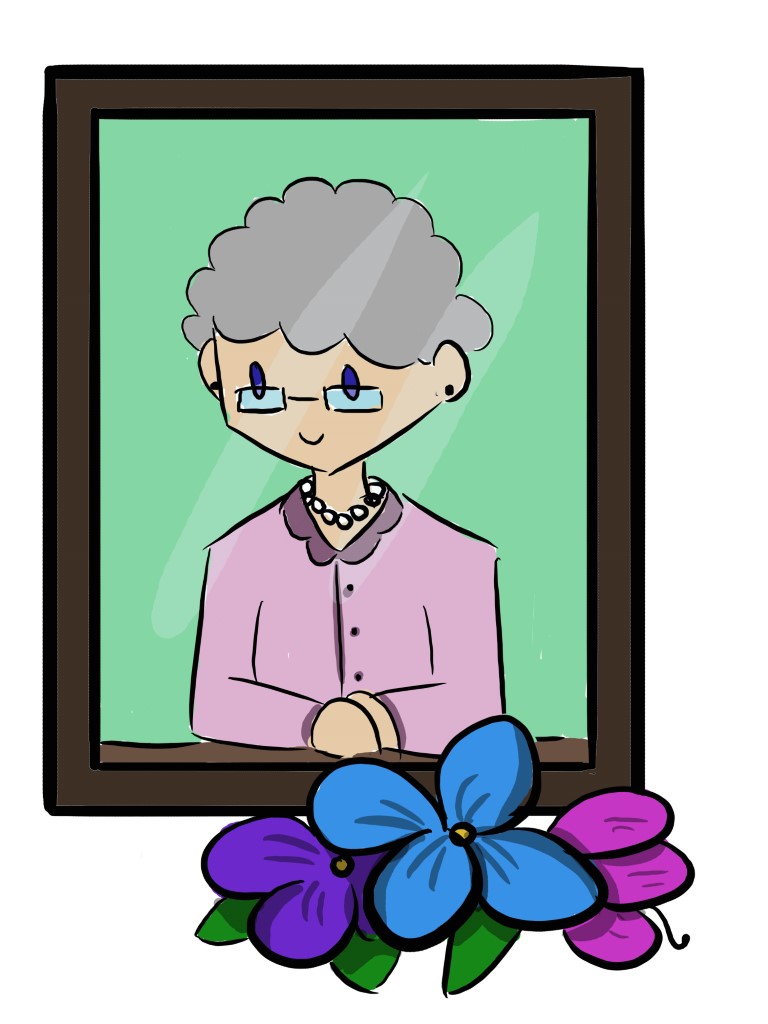
There’s no evolution without a little obsolescence
By Matthew Fraser, Opinions Editor
It’s the year 2075, you’re sitting with your grandkids reminiscing about the days when TikTok was cool and Billie Eilish was young. They ask you about the great COVID-19 pandemic of 2020, you grow sombre as memories of weeks spent indoors flash through your mind and you begin to vividly recount the underground exchange of toilet paper and hand sanitizer. You omit the part where 25 percent of old people have died because they either didn’t have health care or were deemed too old for saving. The kids accuse you of lying, you laugh, they laugh, and you tell them how most grandparents met on this app called Tinder. Life goes on because you’re past the stage in capitalism where grandma dies.
In economics you learn about a little thing called autarky. Basically, autarky is when a country is self-sufficient and doesn’t need to trade with the outside world—it can hoard all of its products and resources for its own benefit. Though we have precious few examples of this in the modern world (Nazi Germany and North Korea being the main two) more often than not this gradually kills the economy and ensures deep shortages of many essential items or crippling market inefficiencies. Donald Trump took issue that the $3M manufacturing company was prioritizing rich foreign orders when many US states are in need. I assume this is an attempt to make up for downplaying the virus and waiting to employ the Defense Production Act. Alternatively, it’s because Donald Trump has forced a bidding war between states for various hospital equipment from the suppliers who were willing to sell to the USA. As if depleting reserves due to inaction wasn’t enough, in order to show the world who’s really the boss, the President felt the need to air out which governors he thought “knew nothing” or acted too “nasty” to deserve help; on stage at a press conference he saw fit to tell everyone that he advised Mike Pence not to call a number of governors back in the midst of a global pandemic. Not because he was too busy, not because he was closing a deal of the utmost importance but because they weren’t appreciative of the hard work and efforts of the task force. This is the part where Grandpa died because capitalism needed hospitals in foreign countries to run out of PPE and governors to kiss presidential ass to get it.
In a previous article I mentioned that Trump with a number of Republicans and right-wing media personnel have wanted to get some of the public back to work to reinvigorate the economy, despite the risk of some computer models suggesting 100,000s of lives will be lost. Before we consider the audacity required for this action to even be considered, I would like to lay out the fact that Republican governor of Georgia Brian Kemp, admitted on April 1 to just finding out that asymptotic people exist and that they can spread COVID-19. If that guy is in charge of your state’s safety, you may as well quit breathing. This is the incredible thing about the audacity required to make the majority of America aware that someone will die for the economy while simultaneously convincing them that it won’t be them. It seems to require not just cunning evil but an incredible amount of willful ignorance; one must truly believe that they themselves and their family are guaranteed to be spared while whomever does die is serving their wellbeing. If it wasn’t for the absurdity, I would marvel at the delicacy that backs this bold-faced lie. Many parents struggle with the prospect of speaking to their children about death, yet legions of American adults have been convinced that other people’s deaths for monies sake is to be cherished. This is the part of capitalism where Grandma died for Boeing and Amazon to get bailouts while small businesses foreclosed.
Finally, we look around at our own backyard; long-term care homes across Canada have had to call the families of their patients and begin to explain that if the elderly catch COVID-19 instead of taking them to the hospital, they’ll make them as comfortable as possible in the place their already at. A CBC story attained a letter from the Glebe Centre in Ottawa informing caregivers and the families of residents that the centre has no plans to transfer their loved ones should they come down with COVID-19. “Doctors have learned there is no benefit for seniors with COVID-19 to go to the hospital, and they would not survive intensive care.” The news report goes on to illustrate that one hospital only has six ventilators to its name (granted the fatality rate is 90 percent in many cases for those on ventilators) while a care centre elsewhere in the country saw 23 of its 65 residents and one resident’s spouse die from the virus. Of course, these deaths may be better attributed to the savagery that the virus wrecks upon the elderly or the global level of unpreparedness that welcomed this virus, but I can’t help but wonder if the decisions made are not influenced by the cost of saving the young versus the old. This is the stage in capitalism where Grandpa died because it was cheaper to save 38-year-old Fred.

